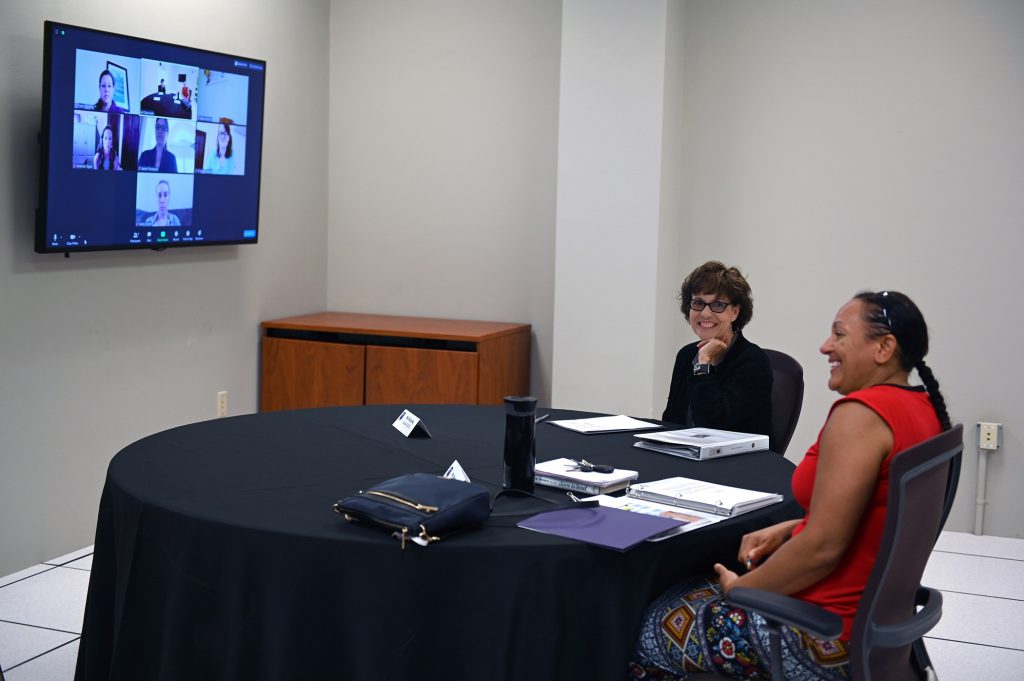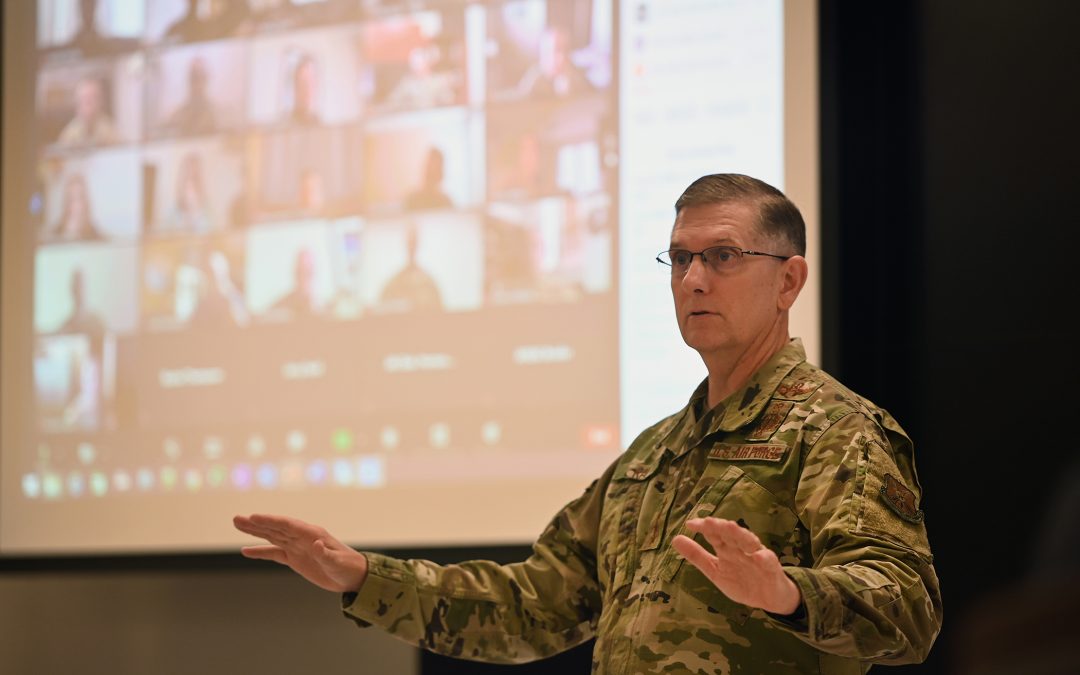Gen. Tim Ray, Air Force Global Strike Command commander, talks to squadron commanders and spouses, both virtually and in person, June 22, 2020, as part of a five-day Squadron Commander and Spouse Course hosted by AFGSC at Barksdale Air Force Base, Louisiana. The purpose of the course is to educate newly assigned squadron commanders on AFGSC leadership philosophies and command policies by providing reality-based training and discussion to assist them, as well as their spouses, in attaining mission success while taking care of our nation’s most precious resource, our Airmen and their families. The course, normally held in person, has transitioned to a virtual setting due to COVID-19 travel restrictions and protection measures. (U.S. Air Force photo by Tech. Sgt. Mike Meares)
By 1st Lt. Gerald Peden | Air Force Global Strike Command Public Affairs
BARKSDALE AIR FORCE BASE, La. — Air Force Global Strike Command held its Squadron Commanders and Spouses Course virtually for the first time June 22-26, educating newly assigned commanders on AFGSC leadership philosophies and command policies in a digital setting.
In line with travel restrictions and physical distancing measures brought on by COVID-19, the five-day course was facilitated at Barksdale Air Force Base, Louisiana, while offering AFGSC squadron commanders and spouses across the country an opportunity to participate in real time reality-based training and discussion, aimed at assisting them in achieving mission success, while supporting Airmen and their family’s needs.
AFGSC’s Innovation, Analyses, and Leadership Development Directorate, also known as A9, had a key role in developing the structure of the course, with the objective of developing authentic leaders across AFGSC, and providing guidance on how commanders can leverage their operational resources.
“The course is about creating climate and culture where leaders are encouraging team innovation, and with this course we can start that growth at the leadership level by developing authentic leaders,” Col. Russell Hart, A9 director, said.

For this year’s courses in particular, leveraging technology to accomplish the objectives of the training became particularly important, resulting in new ways for instructors, commanders and spouses to interact.
“The intent of the program was to make it more interactive, like a coaching session rather than taking a course,” Hart said. “The participants are able to do it from home and when they’ve got one instructor talking directly to them, it is almost like a one on one session. It is direct involvement and engagement that helps this all hit home.”
Drysdale Hernandez, A9 chief of deterrence operations professional development division, said another valuable aspect of the course is that participating commander’s spouses have the opportunity to go through different aspects of the course in order to familiarize themselves with the command.
“The spouses receive many of the same lessons as the commanders,” Hernandez said. “They can go through the training together and are included in the leadership discussions.”
The course’s content also represented a collaborative effort with professionals from pLink Leadership, LLC, and Louisiana State University Shreveport developing the instructional content for the course through the command’s Partnership Intermediary Agreement.
A “Dare to Lead” section of the course was taught in partnership with pLink Leadership, LLC, and included 16 hours of skill-focused instruction based on leadership values and culture materials by Dr. Brene Brown. Additionally, the eight-step process for change from John Kotter’s “Leading Change” was led by instructors with the LSUS Department of Leadership, and included conversations on innovative leadership and generational factors when leading.
Dr. Tony Carver, AFGSC executive chief scientist said the participating educators from pLink Leadership, LLC, and LSUS received guidance on the AFGSC mission to provide context for the development of the curriculum planning.
“They came in and learned about the AFGSC mission and General Ray’s vision,” Carver said. “They designed a curriculum to meet that intent and brought their external expertise to the command.”
Those same goals remain consistent, even in the midst of the global pandemic, as the command continues to focus on teambuilding, instilling bold and authentic leadership, and creating innovative solutions among AFGSC leaders.


